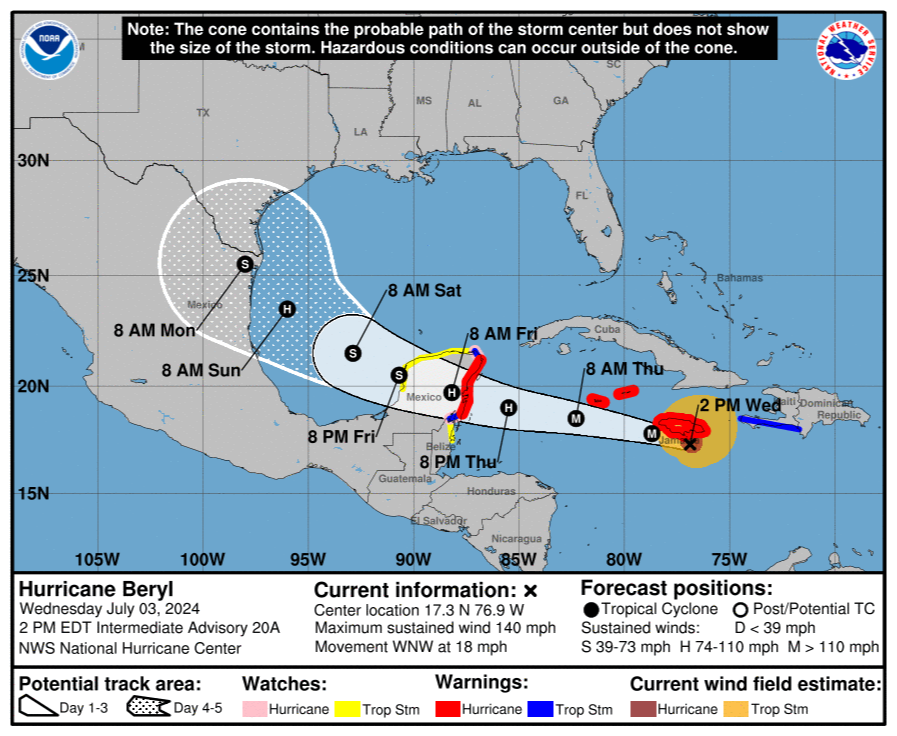
Havana, July 3 (RHC)-- A powerful hurricane -- answering to the name of Beryl -- is churning through the Caribbean, taking aim at islands in its path and producing life-threatening winds and waves
By Wednesday afternoon, the storm had already torn through St. Vincent and the Grenadines. "Everything is destroyed, there's nothing else in Palm Island," Katie Rosiak, general manager of the Palm Island Resort, told Reuters.
Meanwhile, motorists lined up outside gas stations in Jamaica’s capital, Kingston. Steady rain has already washed out roads near the coast. High winds pelted parts of the island around midday, when the centre of the storm was located around 120 kilometres southeast of the city. Islanders are scrambling to board windows and bring boats ashore. Officials have warned people in flood-prone areas to prepare to leave.
Venezuela's vice president -- Delcy Rodriguez -- was injured by a falling tree as she surveyed an area south of Beryl’s path on Tuesday night, where the Manzanares River in Sucre state swelled, according to local state television.
The National Oceanic and Atmospheric Administration (NOAA) forecast “devastating, hurricane-force winds, life-threatening storm surge, and damaging waves.”
On Thursday, a dangerous storm surge is expected to cast heavy rainfall over the Yucatan Peninsula and Belize. Hurricane and tropical storm warnings are in effect for those areas.
The western Gulf of Mexico area, including Texas, is also in the storm’s path. That region is expected to feel Beryl’s effects over the weekend, though forecasters say the storm’s intensity is difficult to predict that far into the future.
The now-Category 4 storm has left a trail of devastation across the Caribbean, killing at least six people. Ahead of the storm’s arrival, Jamaican Prime Minister Andrew Holness called for stronger climate action from wealthier nations.
Prime Minister Andrew Holness: “Hurricane Beryl is the earliest Category 5 hurricane on record. It highlights the growing impact of climate change on global weather patterns, particularly on small island developing states like Jamaica. While our carbon emissions are minuscule, our region bears the brunt of the impacts of climate change. The hurricane further highlights the urgent need for global climate action and targeted support to enhance resilience against the escalating dangers of climate change.”
Only two other hurricanes have made landfall in Jamaica in the last 40 years.

